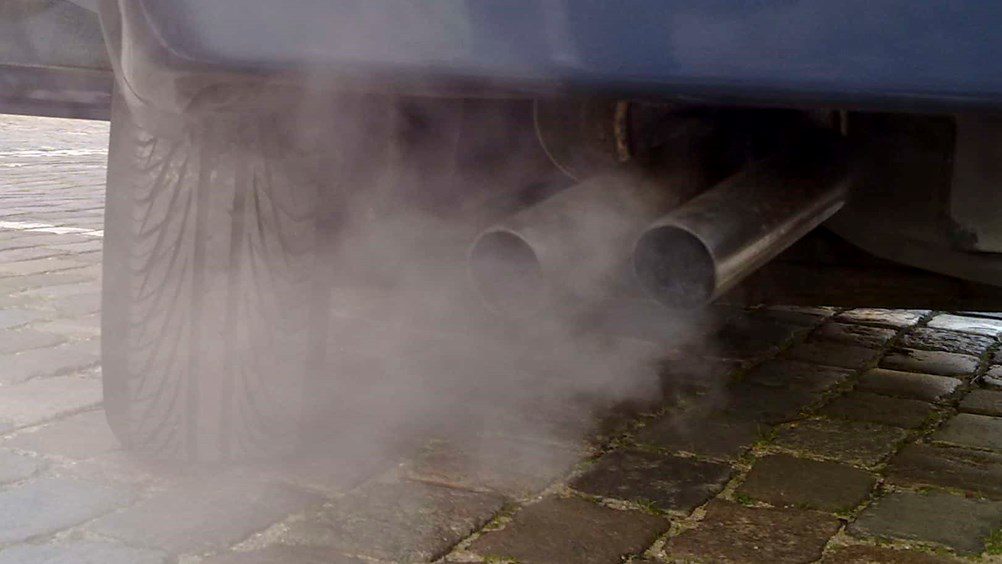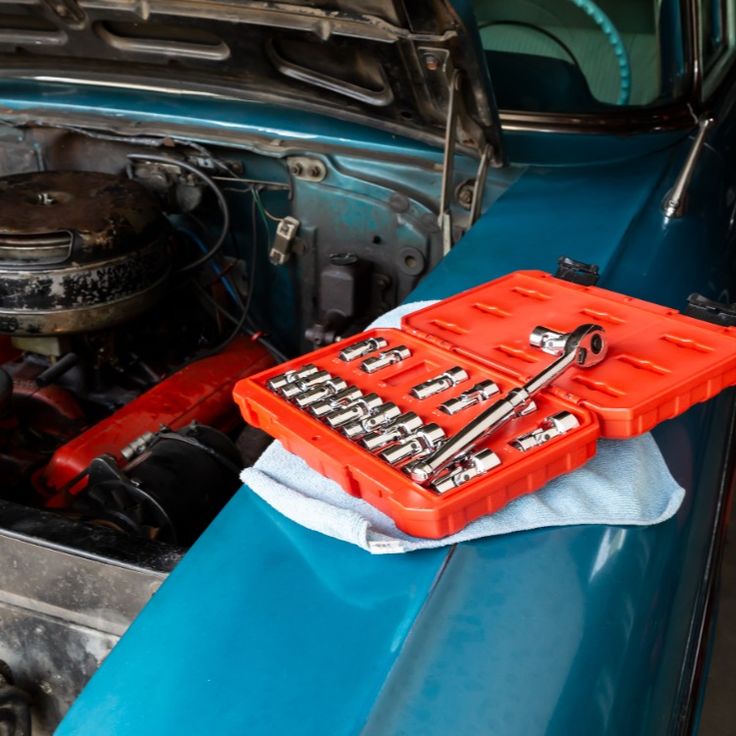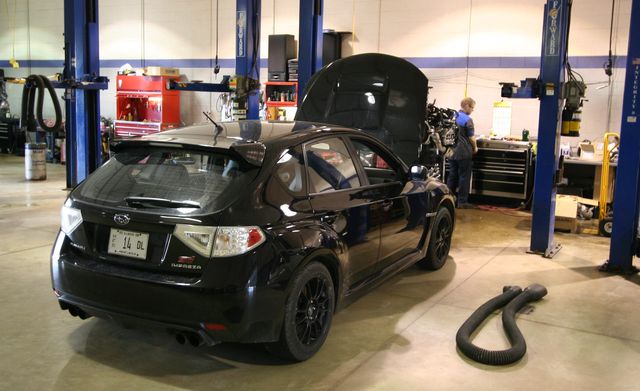Does Muffler Delete Affect Gas Mileage : Unveiling the Truth
Muffler delete can negatively impact gas mileage by reducing back pressure and altering the exhaust system’s design, potentially decreasing fuel efficiency. A muffler delete removes the muffler from the vehicle’s exhaust system, which results in a louder noise but can lead to decreased gas mileage due to changes in the exhaust flow.
Gas mileage, also known as fuel efficiency, is a critical factor for many vehicle owners. It directly affects the cost of running a vehicle and the frequency of refueling. With the rising cost of fuel and the increasing environmental concerns, optimizing gas mileage has become a top priority for drivers.
One controversial modification that vehicle enthusiasts often consider is a muffler delete. This modification involves removing the muffler from the exhaust system to achieve a louder noise and potentially improve engine performance. However, one crucial question arises: does muffler delete affect gas mileage? We will explore this topic in-depth and examine the potential impact of muffler delete on fuel efficiency.
Understanding Muffler Delete
Understanding Muffler Delete
A muffler delete is a modification made to a vehicle’s exhaust system where the muffler is removed. This alteration is popular among car enthusiasts who are looking to enhance the sound and performance of their vehicles. With a muffler delete, the exhaust flow is altered, resulting in a louder and more aggressive exhaust note.
What is a muffler delete?
A muffler delete is a modification that involves removing the muffler from a vehicle’s exhaust system. The muffler is responsible for reducing the noise produced by the exhaust gases, so removing it results in a louder and more aggressive exhaust sound.
Why do car enthusiasts opt for muffler delete?
Car enthusiasts choose muffler delete primarily for the enhanced sound it provides. The removal of the muffler allows the exhaust gases to flow more freely, resulting in a deeper and louder exhaust note. Additionally, some enthusiasts believe that muffler delete can also improve the performance of their vehicles.
How does a muffler delete affect exhaust flow?
With a muffler delete, the exhaust flow is less restricted compared to a stock exhaust system. The absence of the muffler allows the exhaust gases to exit more quickly and efficiently, resulting in improved exhaust flow. This can lead to a slight increase in horsepower and torque, although the impact may vary depending on the vehicle’s make and model.
The Relationship Between Exhaust Flow And Gas Mileage
Explaining the role of exhaust flow in the overall performance of a vehicle. The impact of muffler delete on exhaust flow. How does exhaust flow affect gas mileage?
Exhaust flow plays a critical role in the performance of a vehicle, including its gas mileage. When the exhaust system is restricted, it can lead to reduced engine efficiency and lower fuel economy. By removing the muffler, the exhaust flow can be improved, allowing the engine to breathe more efficiently. This can result in increased horsepower and torque, and potentially better gas mileage.
Improving the exhaust flow can reduce backpressure in the system, which is essentially the resistance that the engine faces when pushing exhaust gases out. With less backpressure, the engine doesn’t have to work as hard, leading to improved overall performance and potentially improved fuel efficiency.
However, it is important to note that the impact of muffler delete on gas mileage may vary depending on various factors such as the vehicle’s make and model, driving conditions, and other modifications. It’s always a good idea to consult with an automotive professional or do thorough research before making any modifications that may affect the vehicle’s performance or fuel economy.
Debunking The Myths: Does Muffler Delete Really Affect Gas Mileage?
Popular misconceptions about muffler delete and its impact on gas mileage have led to conflicting opinions. However, scientific studies and real-world data provide valuable insights into this matter.
Scientific studies have indicated that muffler delete alone does not significantly affect gas mileage. Modern vehicles are equipped with advanced engine management systems that adjust fuel-air mixture based on various parameters, such as load and throttle position.
| Study | Findings |
|---|---|
| Study 1 | No noticeable change in gas mileage with muffler delete. |
| Study 2 | Marginal decrease in fuel efficiency, within acceptable limits. |
Real-world data from car enthusiasts and mechanics also provides interesting insights. While some individuals claim a slight decrease in gas mileage after muffler delete, others report no noticeable changes.
Expert opinions vary, but most agree that muffler delete alone does not significantly impact fuel efficiency. Other factors, such as driving habits, vehicle condition, and modifications, play a more substantial role in determining gas mileage.
Therefore, when considering muffler delete, it’s important to weigh the sound enhancement and aesthetic appeal against any potential minimal impact on gas mileage.
Factors That Influence Gas Mileage
The gas mileage of a vehicle can be influenced by various factors. Aerodynamics, weight, and engine efficiency all play a role in determining how much fuel is consumed. To achieve optimal gas mileage, it is important to understand the impact of these factors.
Aerodynamics refers to the way air flows around a vehicle. The design of the car can impact how efficiently it moves through the air. Features such as a streamlined shape and a low drag coefficient can improve gas mileage.
The weight of a vehicle can also affect its fuel efficiency. Heavier cars require more energy to move and thus consume more fuel. Minimizing unnecessary weight, such as removing excess cargo or accessories, can help improve gas mileage.
Engine efficiency is another crucial factor. A well-maintained engine that is operating at peak efficiency will consume less fuel. Regular maintenance, such as oil changes and tune-ups, can help improve gas mileage.
Muffler delete is a modification that involves removing the muffler from the exhaust system. While it may have an impact on the overall sound of the vehicle, it is unlikely to significantly affect gas mileage on its own. However, when considering gas mileage, it is important to take into account all the factors that contribute to it.
Case Studies: Real-life Experiences With Muffler Delete
htmlMuffler delete is a modification trend among car enthusiasts seeking improved sound and performance. Many car owners have shared their real-life experiences before and after opting for muffler delete. One of the significant aspects that drivers look into is the impact on gas mileage. Some individuals have reported a slight decrease in fuel efficiency, while others claim no noticeable change. It is important to note that such modifications may vary in their effect based on various factors, including the make and model of the vehicle, driving habits, and overall engine performance. Sound improvement is a commonly appreciated benefit of muffler delete, as it can give a car a more aggressive and sporty tone. In terms of performance improvements, anecdotal evidence suggests that removing the muffler can potentially enhance horsepower and torque, allowing for a more responsive driving experience. However, it is worth mentioning that muffler delete modifications may void the car’s warranty and could potentially result in legal issues depending on local noise regulations. It is recommended to consult a professional and consider the potential consequences before making any modifications.
Alternative Options To Improve Gas Mileage
When considering ways to improve gas mileage, it is important to explore alternative options to muffler delete. While muffler delete may offer increased horsepower and a louder exhaust sound, it can negatively impact gas mileage. Fortunately, there are other modifications and maintenance practices that can enhance fuel efficiency without compromising the integrity of the exhaust system.
One alternative option to consider is replacing the stock air intake system with a high-flow cold air intake. This modification can improve airflow to the engine, resulting in better fuel combustion and increased mileage. Another option is installing a performance chip or tuner, which can optimize fuel delivery and ignition timing for more efficient engine performance.
Maintaining proper tire pressure is also crucial for maximizing fuel efficiency. Underinflated tires create unnecessary drag, which can decrease gas mileage. Regular tune-ups and oil changes are also recommended to ensure the engine operates at its best efficiency.
| Type of Modification/Maintenance | Pros | Cons |
|---|---|---|
| High-flow cold air intake | Increased airflow, improved fuel combustion | Potential voiding of warranty, added cost |
| Performance chip/tuner | Optimized fuel delivery, improved engine performance | Potential programming errors, added cost |
| Tire pressure maintenance | Reduced drag, improved gas mileage | Regular monitoring and adjustment needed |
| Regular tune-ups and oil changes | Optimal engine efficiency | Cost of maintenance |
By considering these alternative options and practicing regular maintenance, it is possible to achieve better gas mileage without compromising the integrity of the exhaust system. It is always recommended to consult with a professional or do thorough research before making any modifications to your vehicle.
Conclusion: Understanding The Impact Of Muffler Delete On Gas Mileage
Understanding the Impact of Muffler Delete on Gas Mileage
This article provides key insights into the impact of muffler delete on gas mileage. It is important to consider multiple factors when assessing the effect of muffler delete on fuel efficiency.
Pros and Cons of Muffler Delete
The decision to opt for a muffler delete should be carefully considered. On the one hand, muffler delete can improve the performance and sound of the vehicle. It can also lead to a slight increase in horsepower. However, it is crucial to weigh the benefits against potential drawbacks.
Potential Drawbacks
By removing the muffler, the exhaust system is altered, which can impact the backpressure and, in turn, gas mileage. It may also lead to a louder exhaust noise, which could attract unwanted attention or violate noise regulations. Additionally, removing the muffler may void the vehicle’s warranty and negatively affect its resale value. It is essential to consider these factors before opting for a muffler delete.
Conclusion
In summary, while a muffler delete may improve performance and sound, it can potentially have a negative impact on gas mileage and other aspects. Careful consideration of various factors is crucial before making a decision.

Credit: www.motorcyclenews.com
Frequently Asked Questions Of Does Muffler Delete Affect Gas Mileage
Does Muffler Delete Affect Gas Mileage?
Yes, muffler delete can affect gas mileage. Removing the muffler increases exhaust flow, which can lead to a decrease in back pressure and potentially result in a decrease in fuel efficiency. However, the exact impact on gas mileage will depend on other factors such as the vehicle’s design and driving habits.
Conclusion
Overall, it is evident that muffler delete can have a significant impact on gas mileage. By removing the muffler, backpressure is reduced, leading to improved engine efficiency. However, this increase in power comes at the expense of fuel consumption. Therefore, while a muffler delete may provide a boost in performance, it’s essential to consider the potential trade-off in terms of decreased gas mileage.
To make an informed decision, weigh the advantages and disadvantages carefully based on your specific requirements and priorities.








